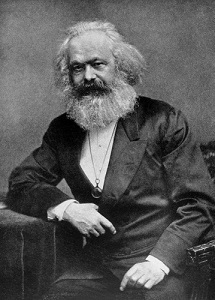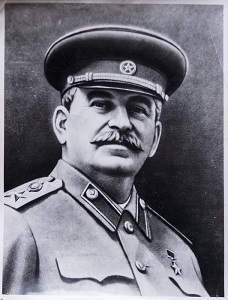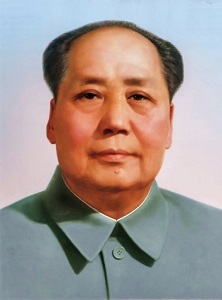

According to Frederick Engels, communism is a doctrine that describes the liberation of the proletariat. Communism is a popular philosophy within the socialist movement that incorporates socio-political, philosophical, and economic ideals. The ultimate objective of the political ideology of communism is to create a communist society or system, which is the kind of society and economic structure that has an absence of private property, social class distinctions, and the state.
Communism is defined as a political and economic system in which the society collectively owns and controls the means of production, exchange, and distribution. The phrase itself alludes to governmental ownership, management, and control of the means of production, distribution, and exchange in an economic and political system. No component of production may be owned by a single person, a group of people, or a private commercial entity.
The major types of communism are based on Marxism or Leninism. Being theoretical as opposed to ideological, identifying political parties based on class and economic interest rather than ideology, and associating with the proletariat are examples of common elements.
By considering small landowners and peasants as potential collaborators in their effort to hasten the end of capitalism, some communists stand out from other Marxists.
Leninist communists participate in elections primarily to inform voters about what they believe to be their genuine interests rather than in reaction to those voters' expressions of interest.

It is a method that uses socioeconomic analysis to materialistically interpret the historical basis of class relationships in order to social conflict.
German intellectuals Karl Marx and Friedrich Engels' writings from the 19th century serve as their cornerstones.
The political concept known as Leninism calls for the establishment of a revolutionary vanguard party and a proletarian dictatorship as a political prerequisite to the building of socialism. The Russian revolutionary Vladimir Lenin is credited with creating and giving his name to the political and economic system known as  Leninism includes a critique of imperialism, guidelines for party organisation, and a discussion of how socialism is implemented through revolution.
Leninism includes a critique of imperialism, guidelines for party organisation, and a discussion of how socialism is implemented through revolution.
In the late 1920s, Joseph Stalin developed the political system known as Marxism-Leninism. A two-stage revolution is what Marxism-Leninism aims to implement to transform a capitalist state into a socialist one. A vanguard party of expert revolutionaries chosen from the proletariat will lead this revolution.
Rapid industrialization, collectivization of agriculture, the idea of socialism in one country, and the increase of class conflict under socialism.
The two-stage theory and socialism in one nation are opposed by the ideology of permanent revolution and global revolution, which is promoted by Trotskyism.
Maoism, a Marxist-Leninist variety of communism that is most prevalent in the People's Republic of China, is connected with Mao Zedong.
The ideological divide between China and the Soviet Union grew during the 1960s. China became successful in dominating the developing world in contrast to two superpowers namely the Soviet Union and the United States, as the Sino-Soviet split in the worldwide communist movement turned into open hostility.
The idea seeks to adapt Marxism-Leninism and Mao Zedong Thought to China's actual socio-economic conditions rather than claiming to reject them. Deng also promoted the establishment of one country, and two systems, as well as the maxim "seek truth from facts" and the opening up of China to the outside world.
A political ideology known as Marxism-Leninism-Maoism builds on these two ideologies. Since the 1960s, organisations that identified as Maoist or supported Marxism-Leninism-Mao Zedong thought have not been unified around a single definition of Maoism but rather have developed their distinct interpretations of Mao's political, intellectual, economic, and military writings.
It is regarded as a development of both Maoism and Marxism-Leninism. It bears the name of Pushpa Kamal Dahal, also known as Prachanda, the CPN(M) leader. Based on the political climate in Nepal, Prachanda Path is an intellectual extension of Marxism-Leninism and Maoism rather than a split between them.
Authoritarianism, political persecution, restrictions on human rights, poor economic performance, and the suppression of the arts and culture have commonly followed communist party leadership. Various socialists, including anarchists, communists, democratic socialists, libertarian socialists, and Marxists, as well as opponents of communism and members of the right-wing, have criticised the authority of the Communist Party. During the communist party's rule, political opponents, members of lower socioeconomic strata, and so-called "enemies of the people" were persecuted and murdered.
Thus, Communism has always risen against exploitation towards the proletariat. They always prefer a classless society where means of production would be equally distributed among people. They are also completely against the ownership of private property. Communism is mostly associated with Marxism but it is important to recognize that other forms of communism also exist even though most of them are influenced by Marxist philosophy.
Q1. How is Communism different from Socialism?
Ans. In Communism the means of production are owned and controlled by the state whereas in socialism the means of production are equally shared or distributed among the citizens of a socialist state. This is the main distinction between socialism and communism.
Q2. Which countries follow Communism today's date?
Ans. The only communist countries that are still in existence are China, Cuba, Laos, and Vietnam. These communist countries frequently claim that socialism or communism is not yet established in their countries, but rather that they are building toward it.
Q3. Give some positives of Communism.
Ans. In a communist society, everyone is regarded equally in the eyes of the government, regardless of their circumstances (such as wealth or education). Economic status does not distinguish or categorise people, which can lessen crime and violence.